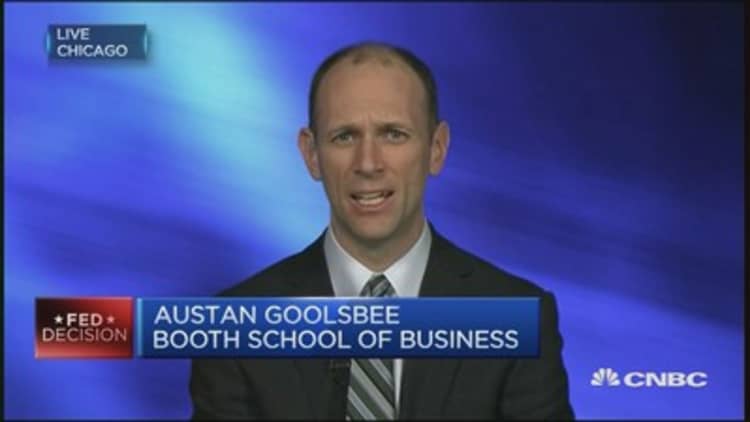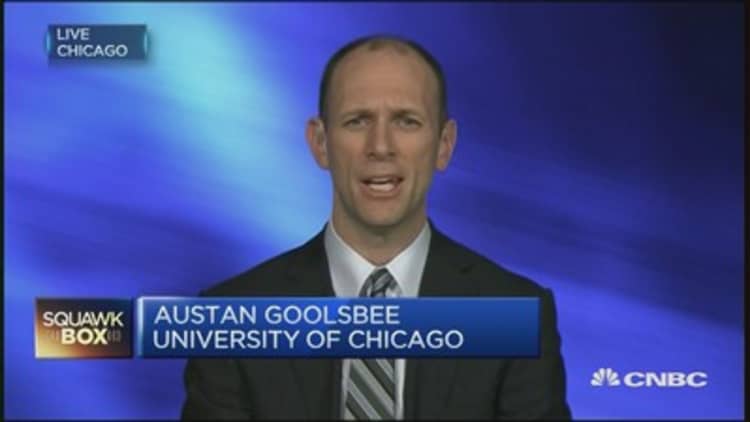

The Federal Reserve may say it's bent on more interest rate hikes this year, but it's much more likely it will need to cut instead, warned Austan Goolsbee, a former adviser to President Barack Obama.
"They want to raise rates; they want to get back to normal. They have said they thought they would raise four times plus this year and I don't think there's any scenario in my mind that they'll be able to do anything remotely like that," Austan Goolsbee, who was chairman of Obama's Council of Economic Advisers from 2010-11, told CNBC's Squawk Box.
Goolsbee, who is now a professor at the University of Chicago's Booth School of Business, said, "It's far more likely that they'll have to reverse themselves as a number of other countries have, like Sweden and others, where they raise the rates thinking it'll be fine and then have to drop it."
The Fed itself fueled market expectations that its previously stated goal of about four interest rate hikes this year wasn't likely to come to fruition, with its post-meeting statement released overnight.
As widely expected, the central bank left rates unchanged but said it was "closely monitoring global economic and financial developments and is assessing their implications for the labor market and inflation, and for the balance of risks to the outlook."
Markets read the Fed's cautious tone on the economy and financial conditions as a sign it is not likely to hike rates in March. The market priced a 24 percent chance of a March rate hike after the 2 p.m. ET Fed statement, down from a 31 percent chance ahead of the release.
"Growth has been only modest in the U.S. and with the things going on around the rest of the world, I fear that 2016 might be worse than just modest growth," Goolsbee said. "We've had good improvements in the job market, but the GDP (gross domestic product) is still pretty weak."
Estimates of U.S. economic growth in the fourth quarter are around 0.8 percent, according to the CNBC Rapid Update, down two-tenths of a point from the previous forecast. The official reading on fourth quarter GDP is due on Jan. 29.
But even if the Fed reverses course on December's 25 basis point interest rate increase - its first hike in nearly a decade - that took it to a range of 0.25 and 0.5 percent, it's not clear it would help the economy much, Goolsbee noted.
"That would only help a little. You'd get a small bump," he said. "But realistically, it was only a raise of 25 basis points and if you thought little movements in the rates would make a difference, then the fact that the Fed cut 400-plus basis points through the crisis ought to have had a better impact than it's had."
Goolsbee pointed to a something the Fed itself acknowledged in its latest statement: the global environment isn't strong.
"We're dealing with the fact that the Fed has some impotence at really trying to get things moving," he said.
"Most of what's happening is you've got problems in Europe, you've got obvious problems in China, slowdowns in the emerging markets. That's feeding back on to the U.S. and slowing down things here and that's not the Fed's fault but it opens them up to be the target for people to say it's the Fed's fault because they raised rates right when this other stuff is starting to bite back."
--Patti Domm contributed to this article
—By CNBC.Com's Leslie Shaffer; Follow her on Twitter @LeslieShaffer1



